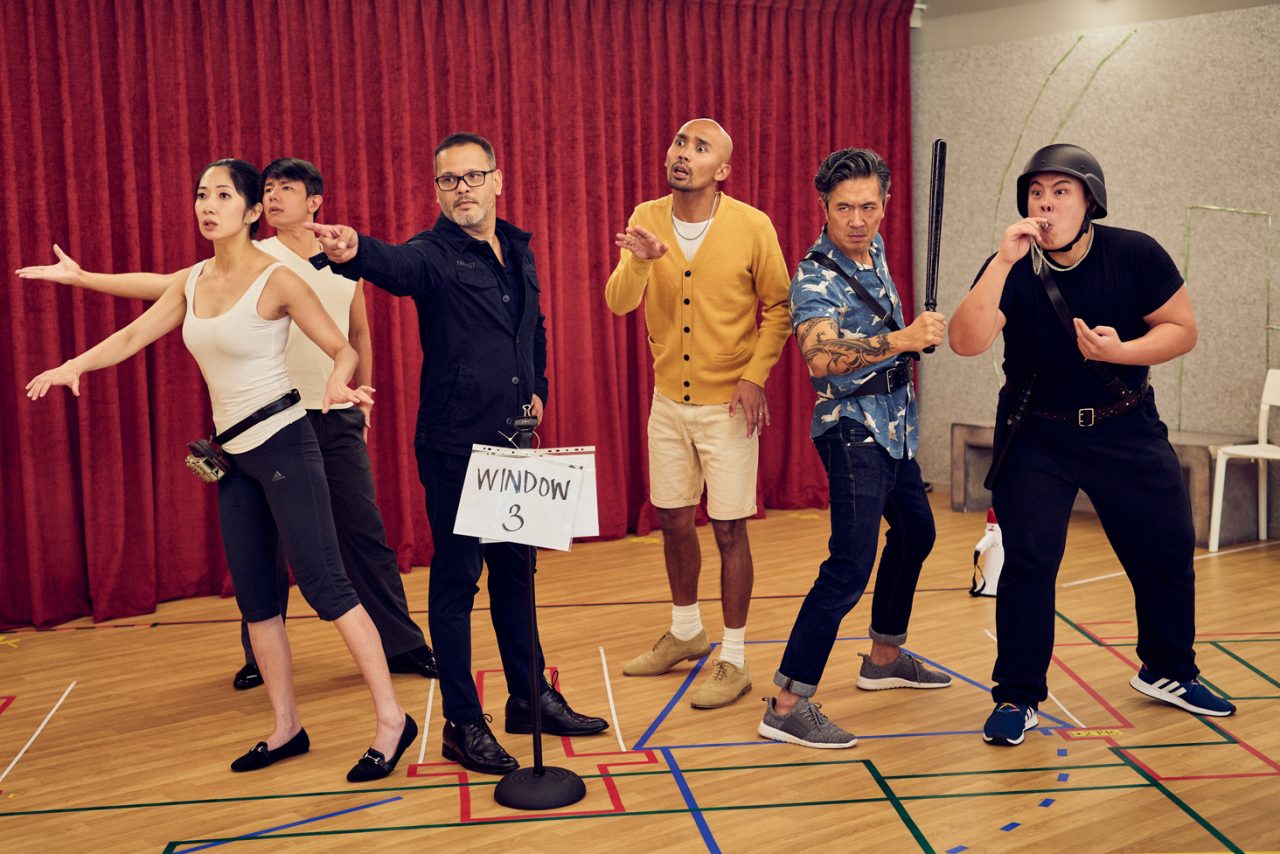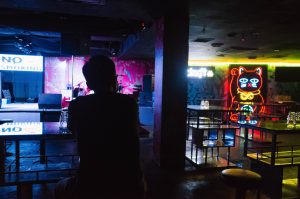“I don’t know that we’re at a stage where that would happen in Singapore,” director Tracie Pang chuckles.
I’ve just asked the cast of Urinetown—Pangdemonium’s upcoming musical comedy—what an uprising in Singapore might look like. This is because one of the play’s central themes discusses violent revolution, an ever pertinent subject whenever we look out of our borders.
Sitting in our air-conditioned homes and offices, slogging through another boring but tranquil day in Singapore, one might look at Hong Kong and go: “What the hell is going on?”
Riot shields, stone slinging, vandalism on government buildings, and … laser pointers? It’s a confusing, violent mess, and even if many of us can sympathise with the protesters and their demands, it might still be a challenge to understand how or why it escalated into such a shit show.
Back home, politicians consistently caution us to maintain racial and religious harmony. We might have had some isolated incidents here in Singapore, but the idea of full-blown chaos on the streets still feels incredibly far away.
“If anything Singaporeans just whinge among ourselves,” Adrian Pang adds. He’s one of Urinetown’s main cast.
“To complain but to just stop there,” co-star Andrew Marko finishes.
Taking our worries to the streets? Nah. We’d never get the groundswell of momentum required to be anything more than a handful of ungrateful whiners escorted to jail.
It regresses such that we have to hurt the other side in order to assert ourselves.
Adrian continues by framing Singapore as a nation of backseat drivers, with their go-to platform being the internet.
This is a problem, because online discourse often devolves into a shouting match, with nobody listening and everyone blaming different people. And sometimes, public will aggregates and reaches a critical mass, manifesting as an amorphous, roiling Goliath.
This is the stuff of Tracie’s nightmares—the spectre of public lynching.
She observes how online vigilantism can get out of hand, through tactics like dogpiling and doxxing. These actions attempt to take control of the narrative, preventing the legal system from doing its due diligence.
“If you throw out an accusation, you have to take responsibility and show evidence for what you’re accusing,” Tracie says.
“You can’t just anonymously ruin people. There has to be a way to make people responsible for their own words.”
The way she talks about the online mob mentality—faceless, irresponsible, destructive—is suspiciously similar to the way protestors and rioters are characterised. And perhaps this is what rebellion looks like in Singapore now. With the absence of physical spaces to air our political grievances—peaceful protests being unlawful anywhere outside of Hong Lim Park—we have absconded to the unregulated high wilderness of the world wide web.
Given how much of our lives exist in virtual spaces, it’s time to rethink what constitutes harm, violence, and revolution.
After all, the ideological crusade between Hong Kong protestors and Chinese nationalists has continued off the streets and online, Great Firewall be damned. The war of information and culture rages on, and many speculate that the shape of World War III would map clearly onto the internet.
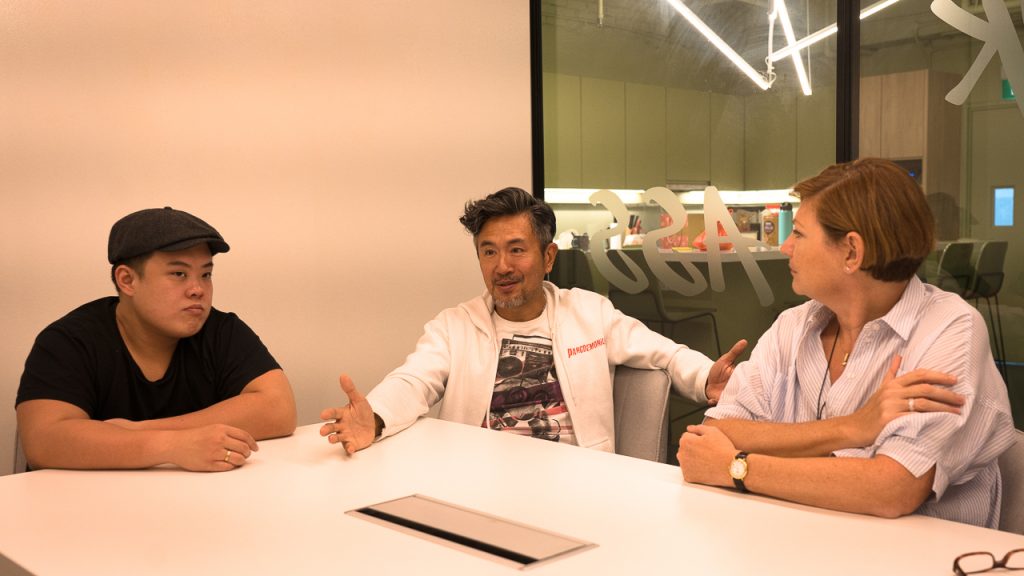
Or maybe, we need our own cross-border water crisis in the most expensive city in the world, with our right to pee stripped away.
That last asinine reason is the premise of Urinetown. Imagine a dystopia where you literally have to pay to pee, and the toilet police can crack down on you if you do your business as you please.
In Urinetown, authorities are pitted against the disenfranchised who don’t have the resources to fulfil their own biological impulses. This framing of human rights as an urgent, non-negotiable need instead of a want or privilege showcases why some people might turn to violence.
My interviewees unequivocally tell me it’s never justifiable to use violence—Andrew even jokes that it’s only permissible during the zombie apocalypse. But they also concede that from the comfort of Singapore, we don’t have the right to make judgments on the intricacies of each issue in its various contexts.
Singapore, for instance, is viewed as an authoritarian technocracy. It’s largely served us well, and few will deny that the heavy hand from above is a necessary fiction to uphold justice and stability.
But Singapore’s success has largely depended on the competence and benevolence of our leaders. The problem is that authoritarianism is a system, and if our leaders change or their attitudes change, then maybe they won’t be as compassionate anymore. The system can be abused.
Naysayers may point to Singapore still being a democracy, and to leave our democratic process to its due diligence. If we have bad leaders, we can just vote them out, right?
But elections only occur once every four years. It’s also no secret that the political process is stacked in favour of the ruling party, who is able to leverage state-aligned media and press, call for snap elections that leave the opposition little time to campaign, and rely on GRCs that place higher barriers to entry on the opposition.
Look no further than the 2011 General Elections. Any electoral system that affords a party 93.1% of contested seats in parliament when they only had 60.1% of the popular vote is … perhaps not as democratic as we’d like to think?
Like Urinetown, maybe one day we’ll have a crisis. In order to protect our country, our government might have to resort to using its full authority. Our freedoms might be further restricted, offending individuals will be punished with the full weight of the state behind it, and we’ll be assured that everything is being done for the greater good.
After all, we’ve done it before. But we might not take it lightly next time.
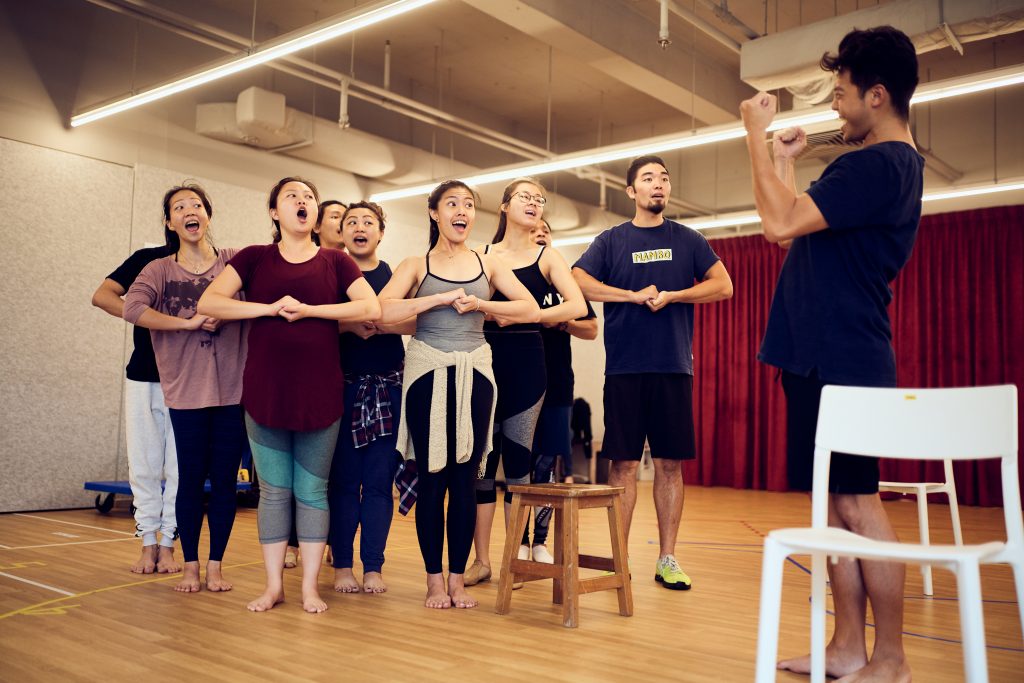
In Hong Kong’s case, for instance, violence was merely a response to the threat of authoritarian China. When the head of Interpol, world renowned actresses, and any number of people deemed ‘enemies of the state’ can disappear extra-judiciously, you best believe people would be concerned with an extradition bill.
We look at their violent actions and condemn them, thinking that if we were law abiding citizens we wouldn’t have to worry. But this assumes that the law is just. That it doesn’t arbitrarily target people, or force them into a way of life they find intolerable—like forcing you to never pee again, if you can’t afford to.
If you’re living in a climate of fear and pervasive danger that threatens your very way of life, wouldn’t you want to do anything in order to protect yourself?
It might be difficult to see it ever happening in Singapore, to find something that everyone cares about enough that we’re willing to risk our peace and stability. But I can think of a few scenarios that would spurn us to revolt.
Maybe we’ll take to the streets when by some stroke of dark miracle the government loses a huge chunk of our CPF monies despite investing them in ‘risk-free assets’. With so much emphasis on bread-and-butter issues in our politics, an unprecedented economic crisis of catastrophic proportions might be what pushes us over the edge.
Or we will riot when we merge again with Malaysia. After all, we’ve placed such a strong importance on independence as part of our national myth. I don’t see us going gently into the good night of being subsumed by another country.
What if we—touch wood—get annexed by China? Then all those doltish foreigners would be right, and traditional Asian values will no longer become so appealing. Maybe we’d even empathise with Hong Kong.
Calls for civility miss the point—never mind that even peaceful forms of civil resistance are frowned upon in Singapore. Civility only works on a level playing field. The Gandhian fantasy of mobilising peaceful resistance only works if your adversaries aren’t completely willing to roll over you Tiananmen style. Tiananmen need not even replay because 21st Century apathy is strong enough that we’re dull to human suffering.
In the end, violence is used as a desperate, last resort. We fight when it feels like all “acceptable channels” of political engagement prove ineffective. When our adversaries can no longer be reasoned with. When systems fail, and authorities supposed to protect us turn against us.
Is there a line, though? We agree that proportional force is to be maintained when we engage in self defence, but is there such a thing when lives and liberties are at stake?
Violence can be extremely emotional. Passions flare and clash, and what started as righteous anger to stand up for our rights tips into fanatical hysteria, just as portrayed in Urinetown. Spoilers: a good amount of people die in the play—though I expect they’ll die hilariously.
“It regresses such that we have to hurt the other side in order to assert ourselves,” Adrian sighs.
“Then it becomes an eye for an eye,” Tracie concludes.
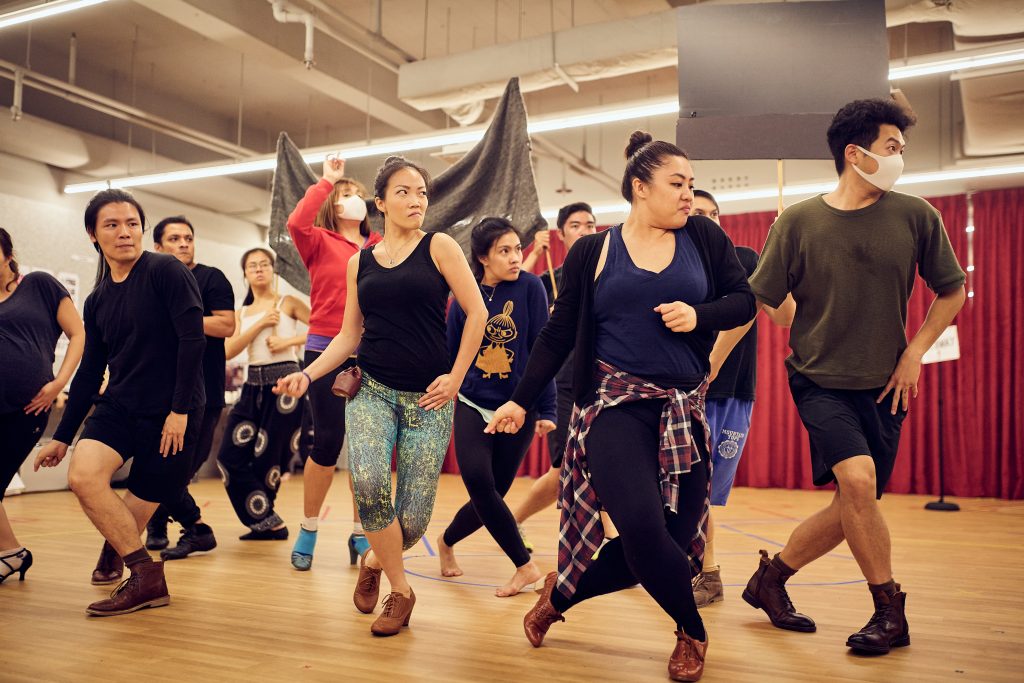
But as Tracie points out to me, just as many countries fall, going through rounds and rounds of revolution. She suggests that some of it is due to corruption, maybe an eagerness for power but not knowing what to do with it, or failing to replace broken regimes with something better.
Winning is easy, but governing is harder, and the failure of following up is a theme that the musical tries to examine as well.
“We only look at change through violent revolution through a romantic lens once it’s way behind us in history,” Adrian tells me. “But look at the human toll it takes! Blood is shed, and these gets so easily put into prose and history books. Urinetown looks at it from afar and takes the piss out of everything.”
“It makes you question your assumptions,” says Andrew. “When we first read the ending I was like oh-”
He slumps his shoulders, eyes wide, miming shock and dejection. Suffice to say, it’s not a happy ending.
“It’s not like that whole yeeaah!!!” he shouts, triumphantly pumping his fist in the air.
“I love rebellion, but having that experience was like oh shit, it’s not fun and games. It’s not just ‘we’re gonna have a slogan and a song’ when it comes to the real thing.”
He doesn’t spell it out explicitly, but Urinetown has a cynical, almost nihilistic view on our species.
So are we fucked?We’re damned if we fight, damned if we don’t. As Urinetown suggests, will we never learn from history, trapped in a cycle of violence intrinsic to human nature?
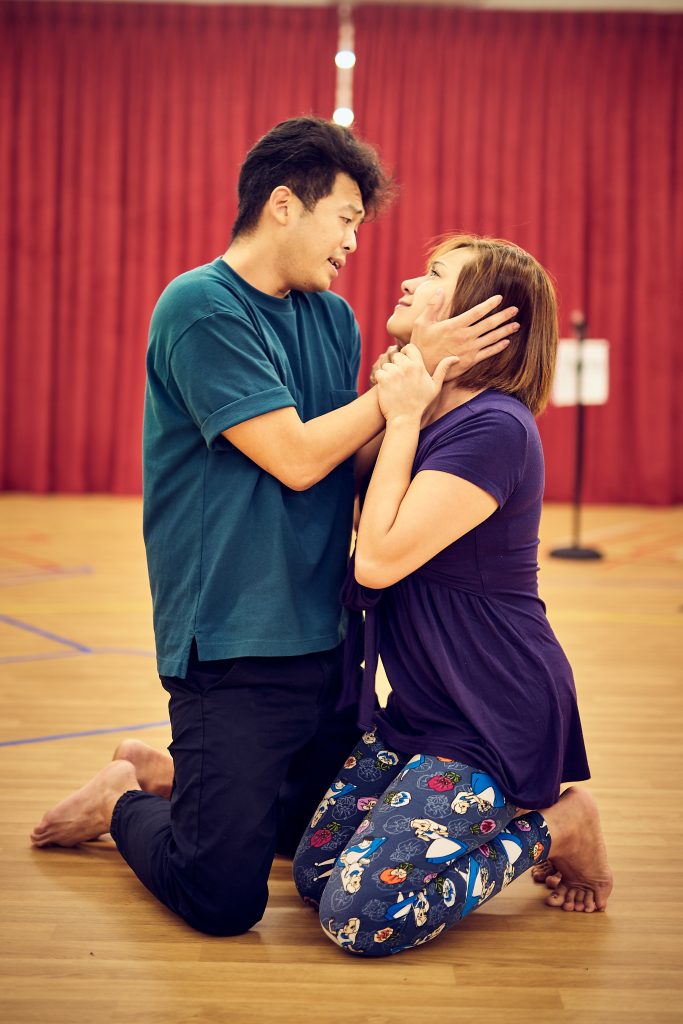
Getting audiences to think has been a running theme in Pangdemonium’s season. The way they’ve approached theatre is to question prevailing narratives in all their complexities, leaving the audience to come to their own answers. Urinetown and its satirical nature in particular lends itself to rather incisive commentary.
“The play asks: look at the mess we’ve made, what are we going to do about it? Can we do something about it?” Adrian tells me. “That’s the slightly bittersweet aftertaste of a very, very silly romp.”
In the end, Urinetown is a good night at the theatre—it’s a comedy first and foremost. Tracie promises pants-pissing laughter with jokes wrapped in easter eggs on everything from current affairs to musicals.
But after watching a performance filled with riotous fun, the cast of Urinetown hope that someone will look at the ideas presented, and take action. That we can recognise the impossibly knotty issue of violence and rebellion in all its shades, and do something to help others.
Did this story light a spark in you? Send anything but your plans for a violent revolution to community@ricemedia.co.
